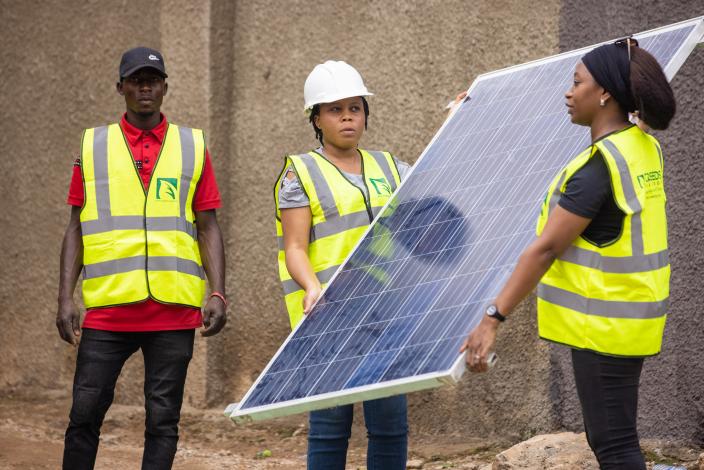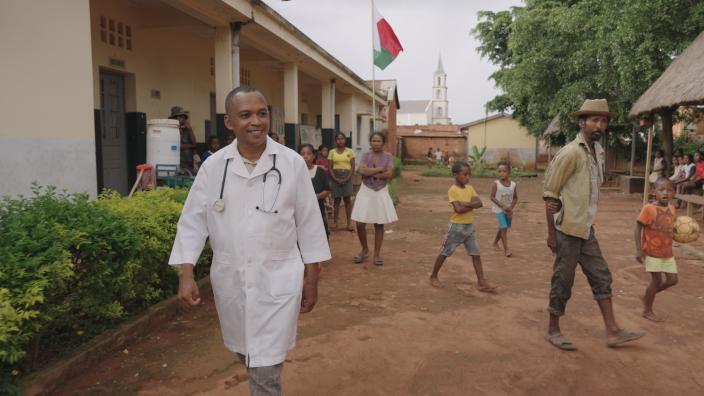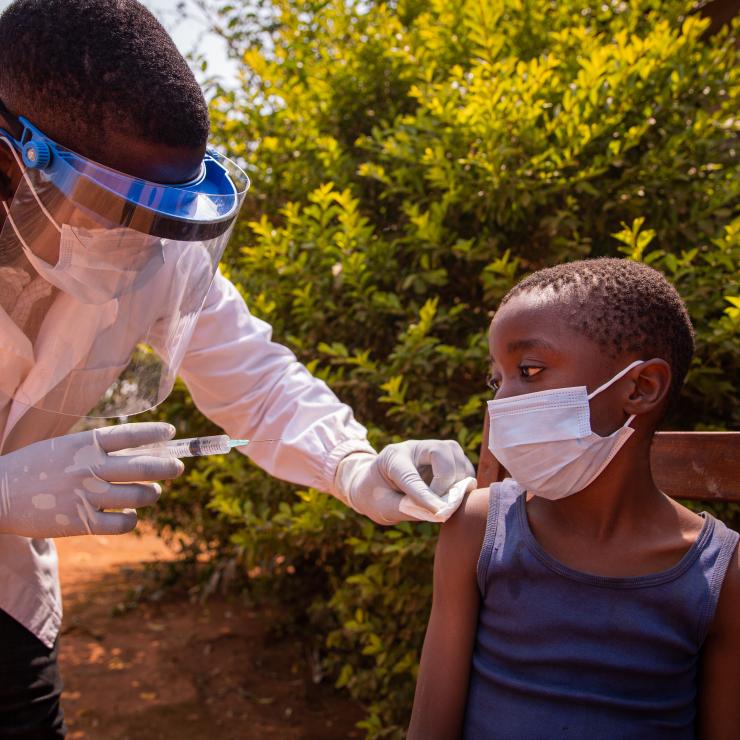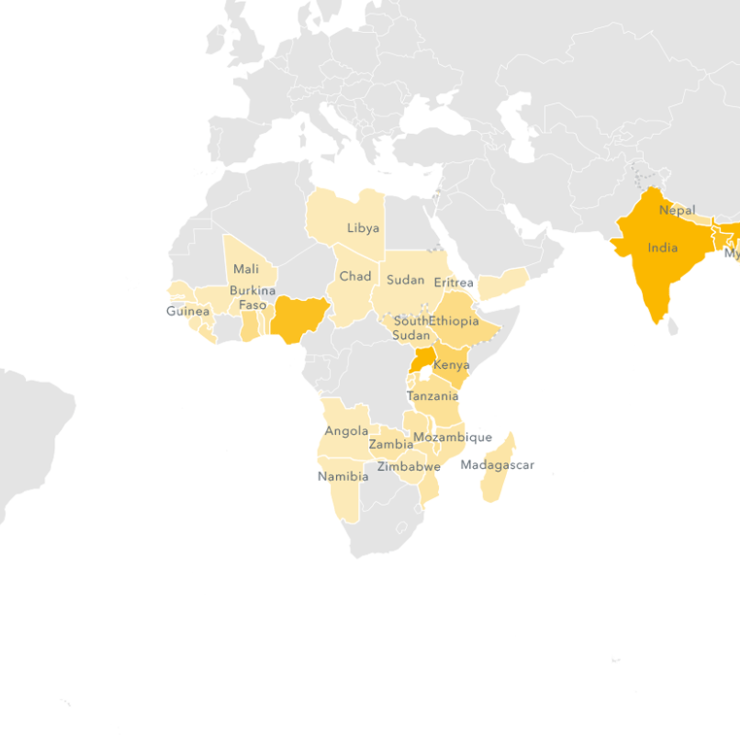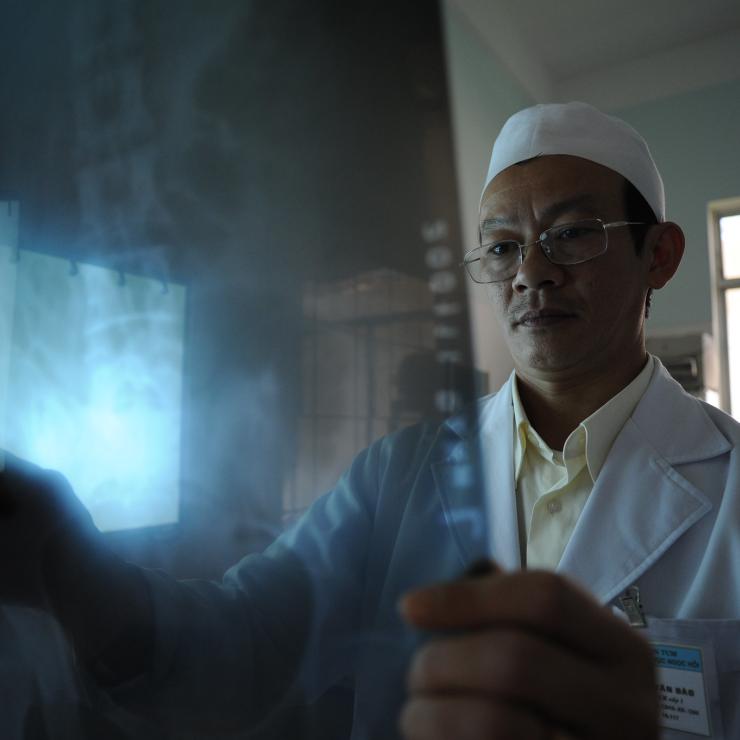SEforALL’s Powering Healthcare Programme
Our Powering Healthcare programme equips governments and development partners with the evidence and solutions needed to achieve universal, sustainable electrification of health facilities by 2030. We aim to inspire stronger commitments and national projects, increase public and private investments and improve sustainability of interventions. We provide a range of support for healthcare electrification, including market assessments and targeted, technical assistance and strategic advisory support to governments in designing and implementing health facility electrification strategies. Our work can be categorized into 5 pillars:
- Bridging the data and knowledge gap
- Driving innovation
- Mobilizing finance
- Providing country-level technical assistance
- Global advocacy and leadership
Our country-level interventions include:
Sierra Leone
38%
Health facilities that lack access to power.
64 m $
Investment needed overall to electrify healthcare facilities.
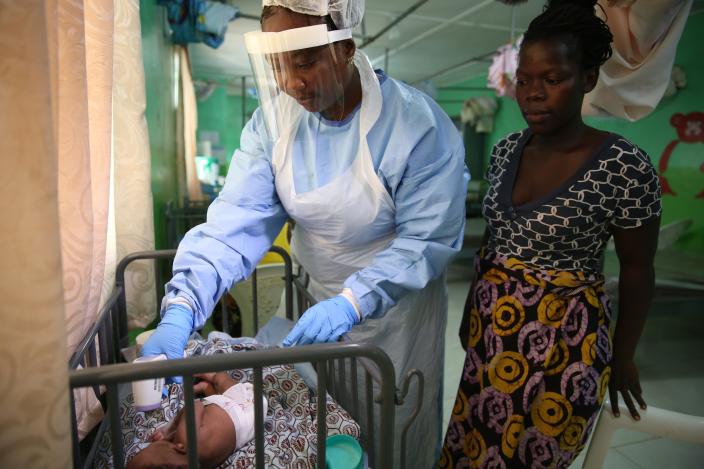
This Market Assessment and Roadmap for Health Facilities in Sierra Leone found that 38 percent of health facilities in the country lack access to power. Those that have access to solar PV, community mini-grids, diesel generators, or the main grid also suffer from either insufficient power or unreliable power. As a result, it is estimated that more than 1,000 health facilities need either a complete power solution or a back-up solution, requiring an investment of approximately USD 64 million.

In Sierra Leone, a lack of affordable and reliable electricity access means that social services such as healthcare facilities are unable to power key equipment, leading to poor health outcomes and putting lives at risk.
The project will electrify six key hospitals in Freetown, Kambia, Masanga, Kabala and Bonthe, with a combined total of more than 0.6 megawatt-peak (MWp) of installed solar PV capacity with battery storage.
Nigeria
40%
Health facilities that lack access to power.
525 m $
Investment needed overall to electrify healthcare facilities.
Rwanda
26%
Health facilities that lack access to power.
10 m $
Investment needed for the electrification and sustainable operation of the health facilities
Madagascar
75%
Basic healthcare centres which have no access to electricity
83 m $
Estimated potential market for health facility electrification by 2030
Our outcomes and impact in 2024
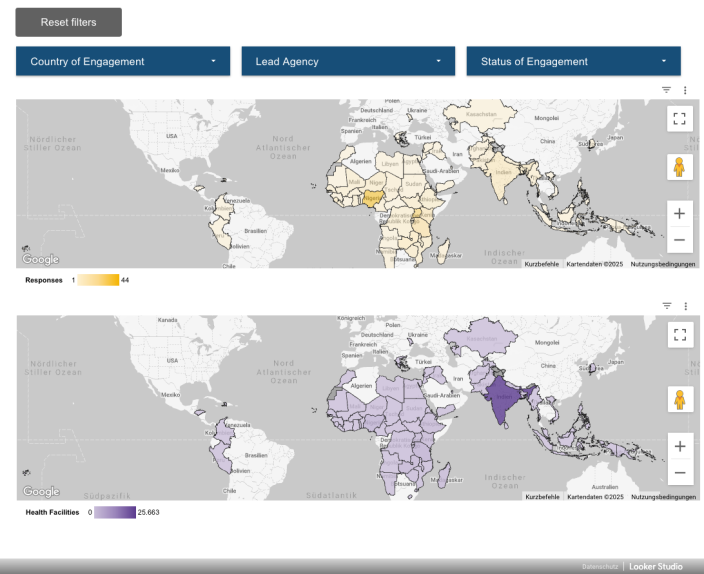
• Launched the State of the Market Report for Healthcare Facility Electrification and Global Heatmap, adding crucial market intelligence to the sector.
Read more
• Launched the Powering Healthcare Innovation Fund and awarded grants of upto USD 100,000 to three winners in Madagascar, Nigeria and Uganda.
Read more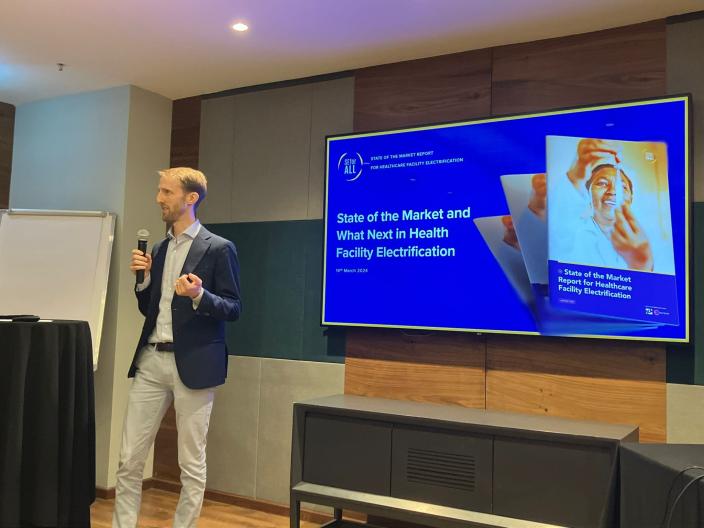
• Conducted a study on de-risking instruments for healthcare electrification, and organized a closed doors discussion in the margins of the TEA Forum in Nairobi.
Read more
• Launched the ‘Powering Healthcare in Madagascar - Market Assessment and Roadmap for Health Facility Electrification’ report, which has key recommendations to sustainably electrify all basic health facilities in the country and the investment required.
• Electrified 7 major hospitals and 25 community health centres in Sierra Leone, adding 1MWp of installed power capacity and impacting millions of lives.
• Created a dynamic database for electrification of healthcare facilities in Sierra Leone, enabling the Ministry of Health to assess existing power solutions and prioritize future energy interventions.

• Increased the ambition of the Multilateral Health Facility Electrification Compact further by raising the targets to 35,000 health facilities to be electrified and 30 market assessments and roadmaps to be completed by signatories by 2026.
• Organized the Electrification of Healthcare Facilities in Africa Conference in collaboration with the African School of Regulation.
• Organized a virtual webinar to disseminate and discuss the State of the Market report.
• Organized discussions at significant climate and energy events like the Transforming Energy Access Forum in Kigali, the GOGLA Off-Grid Forum in Nairobi and COP29, to convene key stakeholders from the sector.

